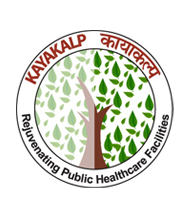## Introduction
In India, ensuring quality healthcare services is of paramount importance. To achieve this, the government has developed National Quality Assurance Standards (NQAS) that serve as guidelines for public health facilities. These standards are designed to meet global benchmarks and improve the quality of care provided to patients.
Understanding National Quality Assurance Standards (NQAS)
NQAS is a comprehensive framework that encompasses various aspects of healthcare delivery. It covers eight key areas of concern: Service Provision, Patient Rights, Inputs, Support Services, Clinical Care, Infection Control, Quality Management, and Outcome. These standards have been developed based on global best practices and are constantly updated to address the specific requirements of public health facilities in India.
Importance of NQAS Certification
NQAS certification plays a crucial role in enhancing the credibility of public health facilities and recognizing their good performance. It allows providers to assess their own quality of care against pre-defined standards and work towards continuous improvement. Certified facilities also receive financial incentives as a recognition of their commitment to providing high-quality healthcare services.
Categories of NQAS Certification
The National Quality Assurance Standards are applicable to various categories of healthcare facilities, including District Hospitals, Community Health Centers (CHCs), Primary Health Centers (PHCs), and Urban Primary Health Centers (UPHCs). Each category has its own set of standards tailored to the specific requirements and challenges faced by these facilities.
The Evolution of NQAS
The journey of NQAS in India began in 2013 when the government recognized the need for a standardized framework to assess and improve the quality of healthcare services. However, the initial implementation faced certain challenges as the checklist included criteria that were not suitable for the socio-economic and health conditions of Kerala, a state in India.
To address this issue, the government collaborated with the National Health Systems Resource Centre (NHSRC) to customize the NQAS checklist according to the specific standards and requirements of Kerala. This customization process took place in November 2017 and ensured that the NQAS checklist was aligned with the state’s healthcare landscape.
The NQAS Certification Process
The NQAS certification process involves a thorough assessment of healthcare facilities against the predefined standards. External assessors, empaneled by NHSRC, conduct on-site evaluations to determine if the facilities meet the required criteria. The assessment covers various aspects, including infection control practices, patient care, patient feedback, clinical services, and quality management.
Financial Incentives for Certified Facilities
Apart from the recognition of their good work, certified facilities also receive financial incentives. These incentives serve as an additional motivation for healthcare providers to maintain and improve the quality of their services. It further encourages them to actively participate in the NQAS certification process.
Benefits of NQAS Certification
NQAS certification offers several benefits for both healthcare providers and patients. Let’s explore some of these benefits in detail:
Improved Quality of Care
NQAS certification serves as a catalyst for quality improvement in healthcare facilities. By following the predefined standards, providers can identify areas that require improvement and implement necessary changes. This results in enhanced patient care, improved clinical outcomes, and a better overall healthcare experience.
Enhanced Patient Safety
Patient safety is a critical aspect of healthcare delivery. NQAS certification emphasizes the implementation of infection control practices and safety protocols, ensuring that patients receive care in a safe environment. This focus on patient safety minimizes the risk of healthcare-associated infections and other adverse events.
Increased Accountability and Transparency
NQAS certification promotes accountability and transparency in healthcare organizations. By undergoing the certification process, facilities demonstrate their commitment to providing high-quality care and complying with the established standards. This transparency instills confidence in patients and helps them make informed decisions about their healthcare choices.
Benchmarking and Best Practices
NQAS certification enables healthcare facilities to benchmark their performance against established standards and best practices. This benchmarking process allows facilities to identify areas where they excel and areas where improvement is needed. It also encourages the sharing of best practices, facilitating knowledge exchange and continuous learning within the healthcare community.
NQAS and the Future of Healthcare in India
As the healthcare landscape continues to evolve, NQAS will play a crucial role in shaping the future of healthcare in India. The government’s commitment to improving the quality of care and ensuring patient safety remains steadfast. NQAS will continue to evolve and adapt to the changing needs of the healthcare system, driving healthcare providers to deliver excellence in care.
Conclusion
The implementation of National Quality Assurance Standards (NQAS) in India has revolutionized the healthcare sector by promoting a culture of quality improvement and patient safety. NQAS certification enables healthcare facilities to assess their own quality of care, make necessary improvements, and achieve recognition for their commitment to excellence. With NQAS as a guiding framework, India is moving towards a future where quality healthcare is accessible to all.



